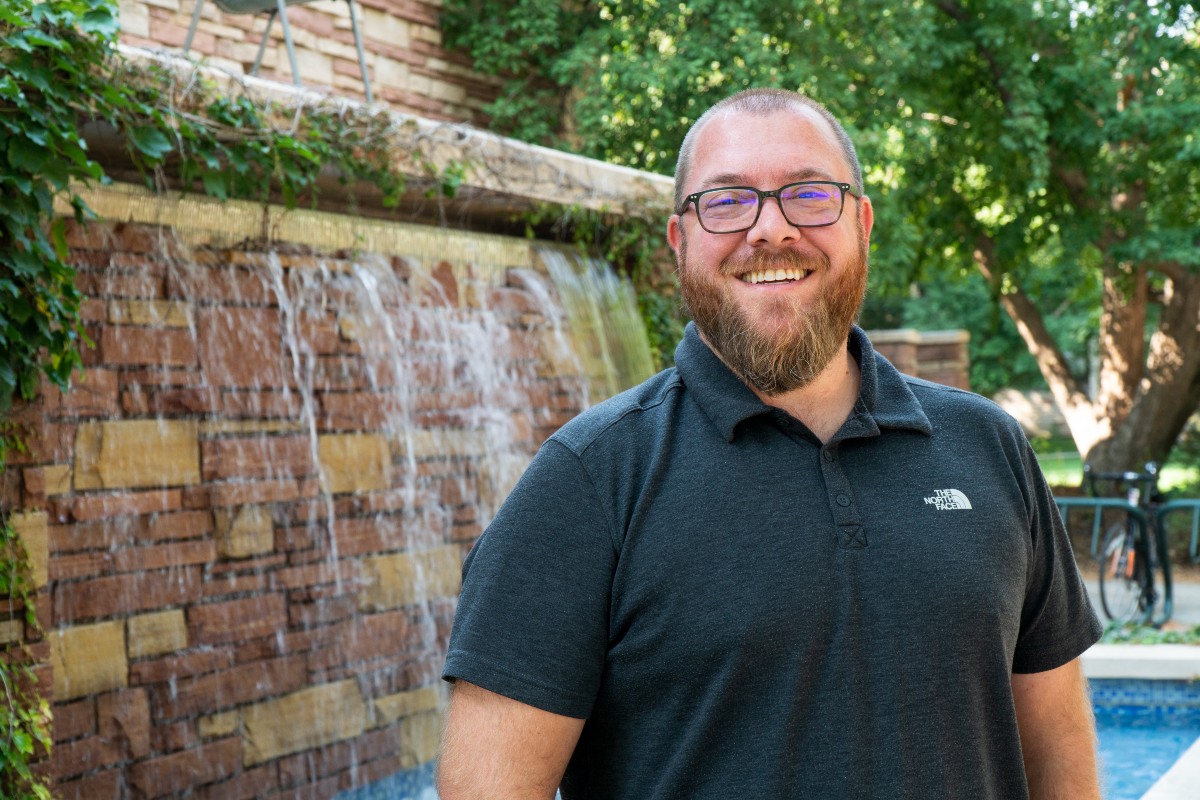
Matt Moulton, assistant professor and undergraduate program professional development school model coordinator in the School of Education at Colorado State University, works with his students as well as local middle schools to create a beneficial learning environment. Moulton’s research focuses on equity which involves alleviating the effects of homelessness in youth, including working with teachers to recognize the problem.
Tell us a bit about yourself!
I am originally from Maine but have lived in Florida, Georgia, Texas, Indiana, and now Colorado. I earned a B.S. in mathematics with a minor in education from the University of Florida, a M.S. in counseling from University of Houston-Clear Lake, and a Ph.D. in educational theory and practice with an emphasis in middle grades education from the University of Georgia. I probably learned the most about life, people, and teaching as a math teacher in Houston, Texas. Outside of academia, I love time with my family and to be outside. We go hiking, biking, paddleboarding, kayaking, and animal watching. When I am not out enjoying the beauty here in Colorado, I enjoy reading and watching gritty dramas.
What brought you to the School of Education at CSU?
After graduating from the University of Georgia, I worked as an assistant professor at Indiana State University. The work with and for middle schools was wonderful. When a job opened up at Colorado State before the pandemic hit in 2020, I jumped at the chance to join the equity-oriented work that was happening in and around Fort Collins, the Center for Educator Preparation, and the School of Education. That search was canceled as the country went into lock down. Two years later, I received an email letting me know that the search was being relaunched. I responded to that email within four minutes. This place is special, I am honored I get to be a part of it.
What are your research and/or teaching interests, and how did you get interested in that topic?
My personal research revolves around issues of equity and access for students in middle schools. Often that focuses on students experiencing homelessness. Fort Collins, and the entire Front Range, have a growing issue as it relates to homelessness, specifically with respect to students. My hope is to support young adolescents’ identities as they travel through homelessness and to prepare teachers to work with and for students. If teachers actively recognize, respond to, and redress the impact and more importantly the root causes of homelessness and housing insecurity, students’ identities can further develop and flourish.
I am also active in middle level education research collaborations. One partnership involves friends and scholars from Illinois State University, Ohio University, and the University of Vermont researching ways to cultivate young adolescent identity development. Another, larger scale project involves envisioning a research agenda for the Middle Level Education Research Special Interest Group of the American Educational Research Association. Regardless of the venue, I love collaborating, writing, and disseminating equity and justice-oriented work to different audiences.
What impact do you hope to have at CSU?
As with most of my answers, this revolves around middle school. I am a new board member for the Colorado Association for Middle Level Education, and I hope that Colorado middle schools are looking for teachers, they think of CSU graduates first. I hope that Colorado middle schools recognize our graduates as engaged, challenging, equitable, empowering, and responsive to the unique needs of students.
What is your teaching philosophy?
I believe that learning is a social activity. We make meaning through our interactions with differences. In my teaching, I hope that future teachers cycle through the following three stages. First, future (and practicing) teachers need to analyze their personal cultural and historical experiences to begin to digest how those experiences influence their interactions with the world. Second, teachers need to intentionally seek out ways to learn about their students’ cultural and historical experiences. Third, teachers collaborate with students across similarities and differences to innovate and learn together.
What is your favorite thing about CSU and the campus?
My favorite spot so far is the fountain outside of the Education Building. I love that there is a constant stream of people all day long.
The School of Education is part of CSU’s College of Health and Human Sciences.